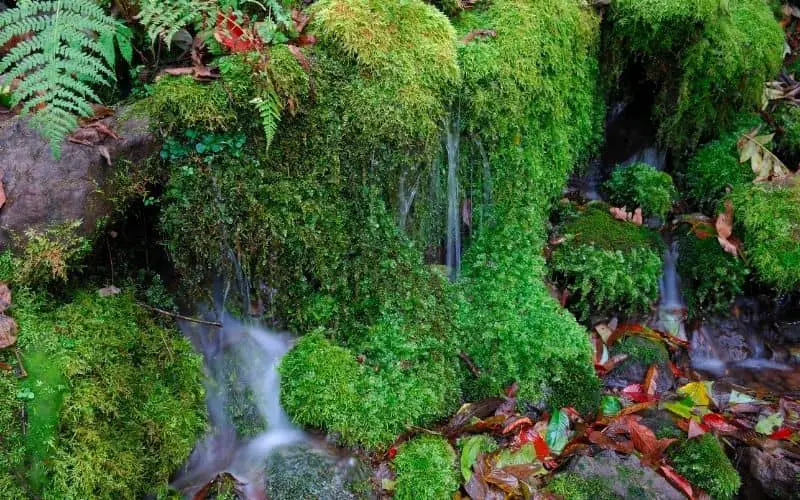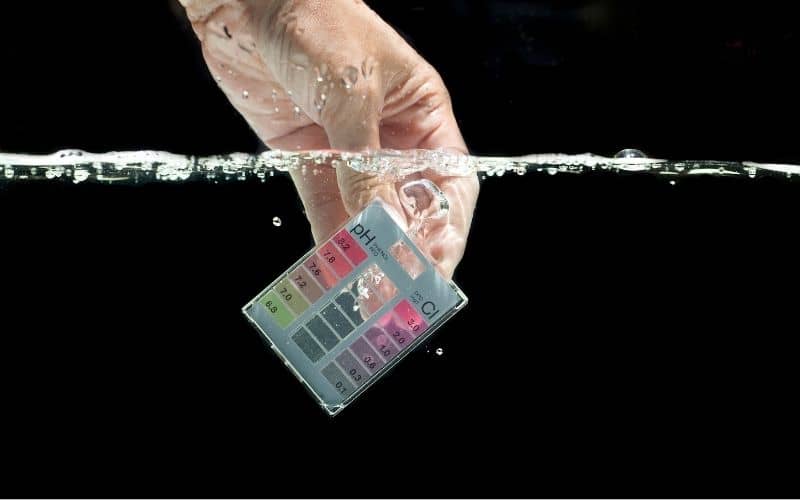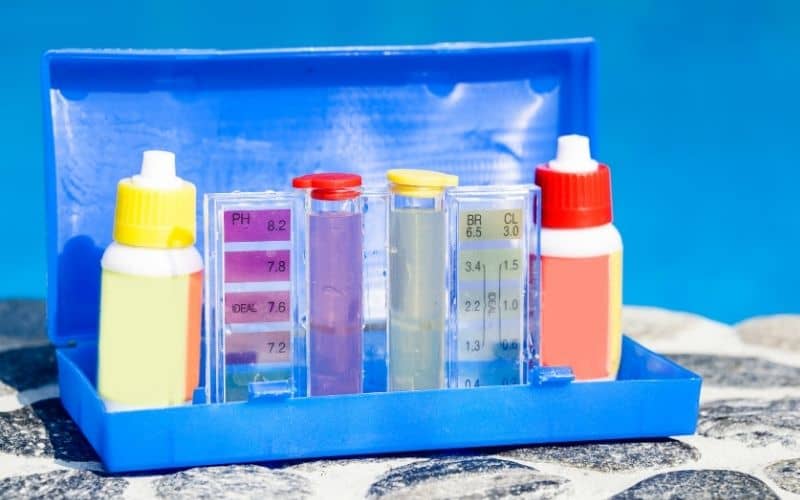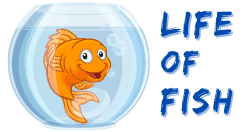Yes, spring water can be safe for your fish! Picture this: a natural, pristine source of water that offers your aquatic pets a refreshing and healthy environment. Spring water has the potential to provide numerous benefits to both humans and fish alike.
However, before you pour it into your fish tank, it’s crucial to understand that not all spring water is created equal. Its composition, including pH levels and mineral content, can vary significantly depending on its source and location. Sudden changes in pH can be harmful to fish, but fear not!
With the right treatment and preparation, you can transform spring water into a safe haven for your beloved underwater companions. So, let’s dive into the world of spring water and learn how to create the perfect aquatic paradise for your fish.

Is spring water safe for fish?
That depends on many factors. Rapid and intense urbanizations directly cause ecological problems in spring water quality parameters in developed countries. Because of these impacts, though it looks like crystal-clear spring water can contain many kinds of chemicals that release effluent water nearby farms and industries.
But you have the ability to convert water from spring-safe to fish.
Does spring water need to be treated for fish?
Jump To
Yes, spring water needs to be treated before adding your fish tank.
Because spring water quality parameters such as pH level and hardness of water can be changed because it may vary due to the nature of the spring water’s location and origin, spring water may include harmful chemicals to your fish. Treating spring water is helped to improve the quality of the water.
Read more Is Well Water Safe For Fish? Make It Safe Easy Way
Read more Is Purified Water Good for Fish? 4 Tips Must Know
Contents of spring water
Springwater is natural water that comes from an underground source, and this water rises to the surface naturally. Spring water contains minerals and traces elements. Minerals found in spring water are Magnesium, calcium, sodium, and potassium.
Naturally, water from the spring comes through the underground rocks. Therefore, minerals dissolve in the water. This mineral is called total dissolved solids (TDS). Springs with significant amounts of minerals are named mineral springs.
And also, springs that do not include such mineral amounts are called sweet springs. Springs that contain sodium salt or sodium carbonate are distinguished as soda springs.
How to prepare spring water for your fish tank
First of all, you should rinse your tank well. Then you can add rocks and gravel to the tank before adding water. Filtering the water directly through the pump is used to oxygenate the water.
Springwater may include some chemicals and other ingredients that are fatal to the fish. Therefore, you should treat the water. Add water to the tank and give some time to run before adding the fish into the tank. Four or five hours are considered the best running time.
Once the water cycle is established, you can gradually begin adding fish. If you add all the fish at once, the formed water quality balance may be rapidly changed. Therefore it can cause the death of all the fish.
Read more 15 Ways to Lower pH in Freshwater Aquarium.
Treatments methods of spring water for use in your fish tank
If you are in an urban area, spring water can be contained chemicals and contaminates.
The first time, you should remove the chemicals in the water from the spring because they are harmful to your fish. Whatever type of water you use in your aquarium includes spring water, you must treat it before adding it to the tank.
The water treatment method is used to make the water safe, clean, and chemically balanced enough for your fish.
pH adjustment
Before adding the water from the spring, to your tank should test the water’s pH, kH, and gH levels. GH is measured by the general hardness of the water and kH considers the carbonate and bicarbonate of the water. Various fish require different pH levels. Therefore, you need to know the preferred pH level of your fish.
If you want to reduce the pH level, there are several chemical solutions, such as diluted acids, tannins, or other organic compounds. You have an opportunity to decrease the pH level naturally by adding driftwood, Catappa leaves, etc.
If your fish prefer a high pH level, you can increase the pH by adding baking soda, gravel, aquatic plants, crushed carols, etc.

Reverse Osmosis (RO)
Normally water from spring has minerals, and if there is a heavy mineral, it is fatal to fish. Therefore, you must make sure your water is safe from heavy minerals. Reverse Osmosis (RO) purifying system is the best tool for this task. This Reverse Osmosis Unit helps to filter out 90-99% of water impurities, including arsenic, pesticides, and heavy metals.
Read more How Long Does Water Take to Dechlorinate ?
Use a water conditioner with spring water?
Before adding your spring water to the tanks, it is better to use a water conditioner. Water conditioners are designed to make the water safe for the fish. And it helps to reduce the stress on the fish as they become more familiar with their new environment.
Water conditioners are not harmful to the fish, and it has chemicals that have the ability to convert the water from spring less harmful to fish.

Effects of spring water on your fish
Spring water offers stable temperature habitats as well as provides nutrients and inorganic ions. Fish consume minerals to include in the spring water. Water from spring includes minerals such as Magnesium, calcium, and iron.
Any springs rich in these minerals act a vital role in providing better health to the fish. Spring water is varying in composition according to pH and minerals due to the nature of the location and origins of this water.
Fish can adapt to a gradual change of pH of their preferable range but sudden fluctuation can be caused to fatal to the fish. Rapid and intense urbanizations directly cause ecological problems in spring’s water quality parameters in developed countries. Spring water can be included many kinds of chemicals that can kill your fish.
Springwater vs city water (Tap water)
The natural overflow of fresh groundwater forms springs water. You can take spring water in a bottle. But the origin of city water is surface water sources such as lakes and rivers.
Spring water is rich in freshness and has more nutrients and beneficial minerals that are very important to the body’s fountain. Further, true spring water filters minimally to remove harmful impurities.
But city water is poor in freshness and has a low amount of nutrients and minerals because of the aggressive filtration process. Relatively water from spring is more expensive than city water. The availability of city water is higher than water from spring.
Related questions
Is spring water safe for a pond?
Springwater is a good option but keeps in mind, consider the contents of your spring water if there are fish in your pond because water from the spring is very in the nature of the spring’s location and origin. It may include heavy minerals and chemicals that are not suitable for your fish.
Keep in mind before adding water from spring to your pond, check the pH, kH, and gH. You have a chance to convert the spring water that is rich in heavy minerals and chemicals into safe for the fish by using water treatment methods.
Is spring water safe for goldfish?
Yes, but if you buy spring water, make sure this water from spring is not demineralized, flavor, distilled, or ionized. And if you use natural water from spring, it may contain heavy minerals and chemicals.
Because of that, keep in mind to test and treat the spring water before adding it to your goldfish tank. Goldfish preferred pH range is 7-7.5. Therefore, try to maintain this pH range in your tank.
